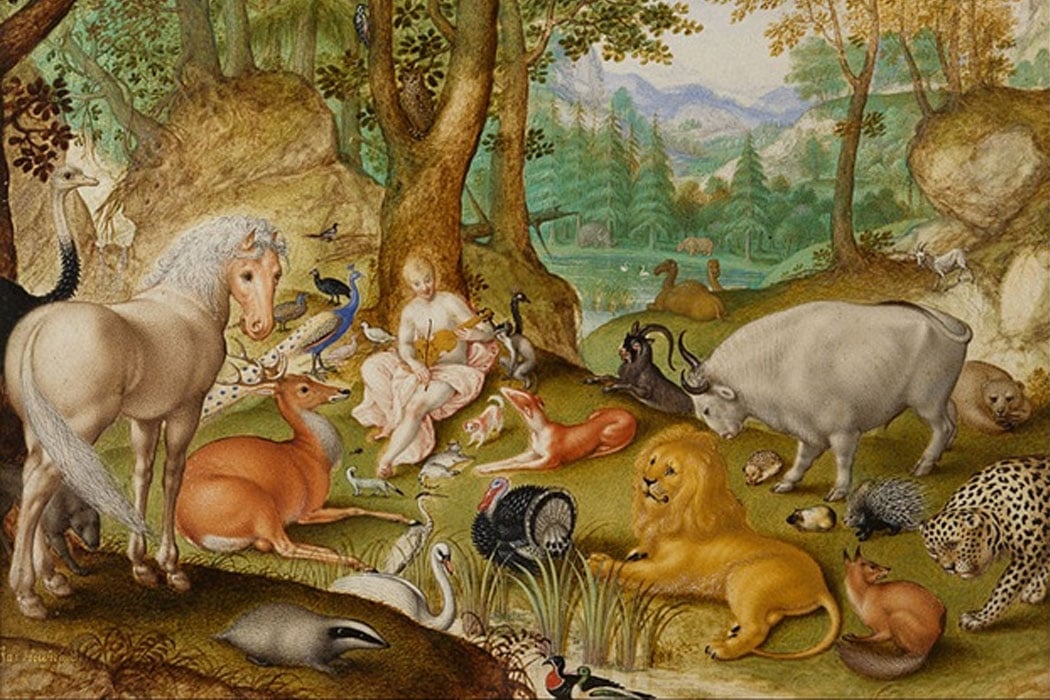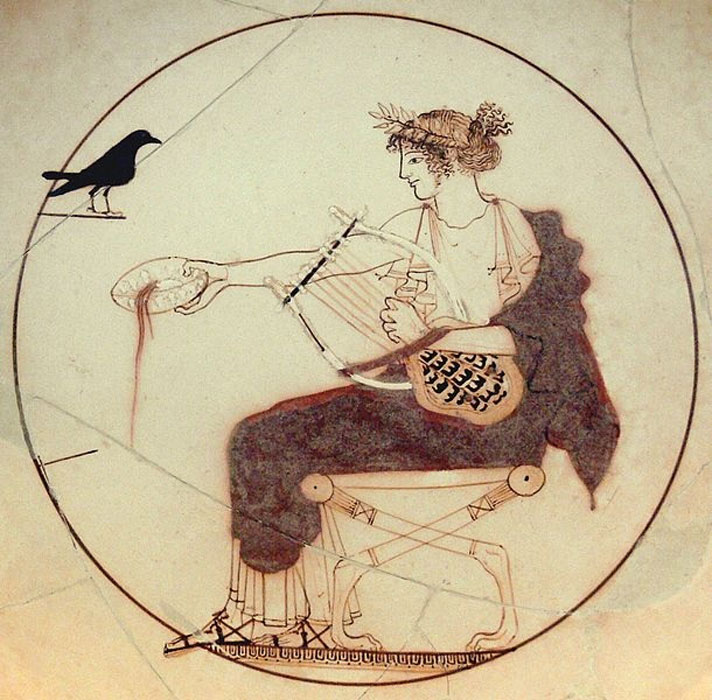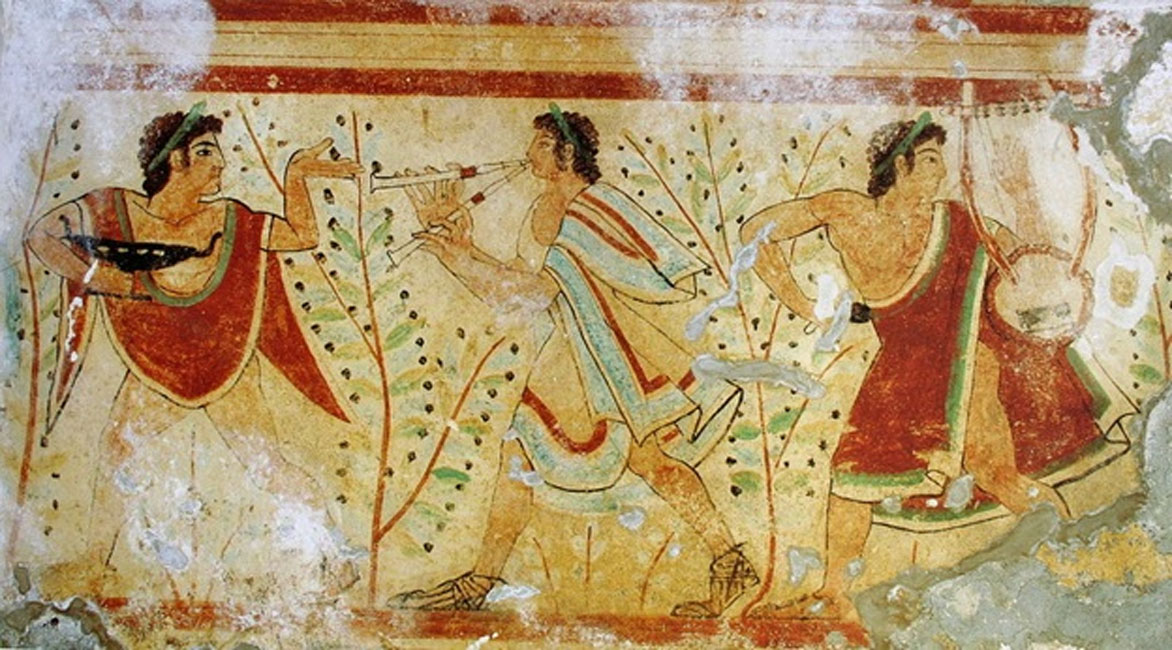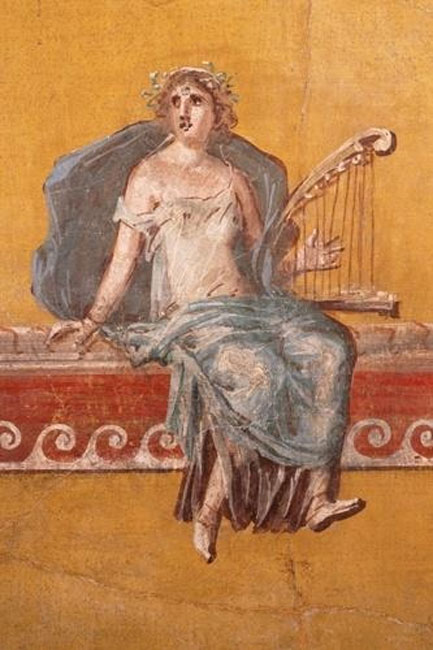
Legendary Ancient Musicians Charmed Beasts, Sirens and Even Hades Himself
Music has had the magical power to charm wild animals, seduce shrewd sirens and even sway Hades himself. Music provides the notes for mythology, where mortals melt the frozen hearts of ancient gods to move and intervene.

Apollo holds a kithara in his left hand and pours a libation with his right hand. From a tomb (probably that of a priest) in Delphi. Archaeological Museum of Delphi. (CC BY-SA 2.0)
Music has been an integral part of the world’s culture since prehistorical times and discoveries of ancient musical instruments are still being made to this day. Excavations at the early Neolithic site of Jiahu in Henan Province, China, (7000 - 5700 BC), have produced what may be the earliest complete and playable multinote musical instruments. A sarcophagus representing the oldest illustration of the seven-string lyre and double flute accompanying a ritual from the Minoan Period (3000 - 1400 BC) was also discovered in Crete. Another wide variety of stringed instruments, such as the Ravanahatha, have also been recovered from archaeological sites of the Indus Valley Civilization.

Dancers and musicians, tomb of the leopards, Monterozzi necropolis, Tarquinia, Italy. UNESCO World Heritage Site. Fresco a secco (Public Domain)
Beyond the more practical aspect of performing with these musical instruments, from around the fifth century BC to the third century AD, the immense impact that music has on the development of one’s personality was recognized by the ancient Greeks and Chinese philosophers. In Greece, the power of music over one’s disposition was emphasized by Plato who included it as a necessity for a man’s first education to form his whole person. Gymnastics were directed primarily towards a child's body, and music directed principally toward his soul. In China, the Yue Ji (Record of Music), one of the most important documents in ancient Chinese musical philosophy, is included as a section in the Li Ji (Record of Rituals) and Shi Ji (Records of the Grand Historia). Both Li Ji and Shi Ji state approvingly that ‘music represented virtue’ for the ancient rulers.

Fresco of a harp player from a Villa at the foot of Mount Vesuvius (First century) (Public Domain)
Swaying Hades: The Heartbroken Orpheus
From a mythological perspective, the history of music in ancient Greece and the Aegean Sea begins when the people from Crete danced to the sound of clashing shields and cymbals to drown the cries of the newborn Zeus to protect him from his father Cronus who planned on eating him. Later, Zeus fell in love with and impregnated Leto. In her jealous rage, Hera then pursued the pregnant Leto to find refuge on a desolate island which was adrift on the sea. On that island, Leto gave birth to the twin deities Artemis and Apollo. Zeus then brought this isolated island to a standstill at the midpoint of the Aegean and named it Delos. The Libyan poet Callimachus (305 – 240 BC) describes in his book Aetia (Causes) that all the sailors passing by Delos were required to stop and join in the songs, dances and sacrifices held around the altar of Zeus.




